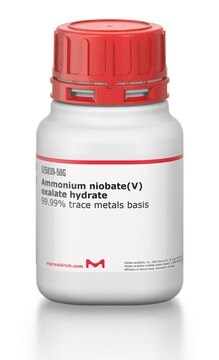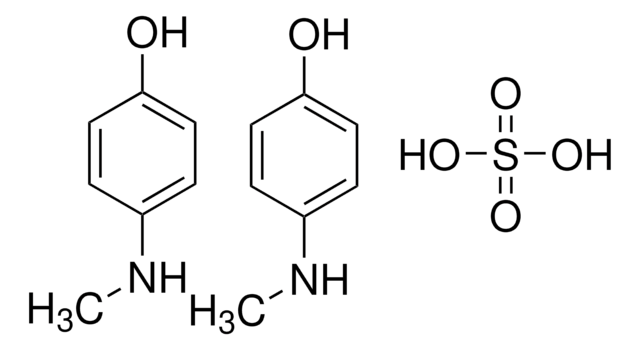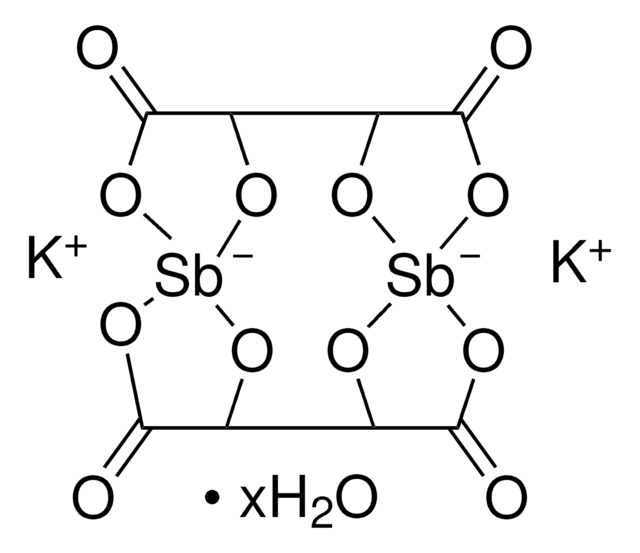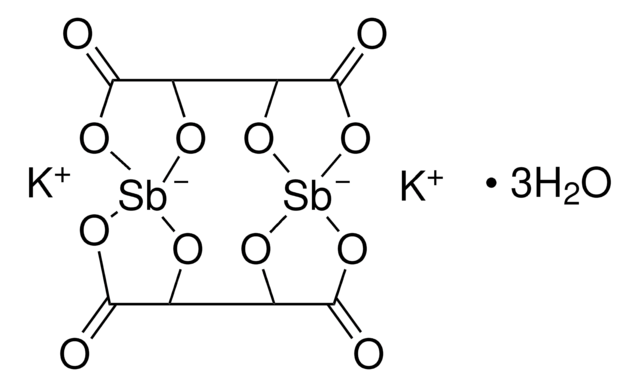A1343
Ammonium molybdate
meets USP testing specifications
Synonym(s):
Ammonium molybdate tetrahydrate, Ammonium heptamolybdate tetrahydrate, Molybdic acid ammonium salt tetrahydrate
About This Item
Recommended Products
Agency
USP/NF
meets USP testing specifications
Quality Level
form
crystals
density
2.498 g/mL at 25 °C (lit.)
application(s)
pharmaceutical (small molecule)
SMILES string
N.N.N.N.N.N.O.O.O.O.O=[Mo](=O)=O.O=[Mo](=O)=O.O=[Mo](=O)=O.O=[Mo](=O)=O.O[Mo](O)(=O)=O.O[Mo](O)(=O)=O.O[Mo](O)(=O)=O
InChI
1S/7Mo.6H3N.10H2O.18O/h;;;;;;;6*1H3;10*1H2;;;;;;;;;;;;;;;;;;/q;;;;3*+2;;;;;;;;;;;;;;;;;;;;;;;;;;;;;;;;;;/p-6
InChI key
FIXLYHHVMHXSCP-UHFFFAOYSA-H
Looking for similar products? Visit Product Comparison Guide
Related Categories
Application
- Photochromic hydrogels for electronic applications: Ammonium molybdate was utilized in the synthesis of a polyacrylamide/sodium alginate/sodium chloride photochromic hydrogel. This hydrogel exhibits high conductivity, anti-freezing properties, and a fast response, making it suitable for information storage and electronic skin applications (Chen et al., 2024).
- Microwave absorption materials: The preparation of flower-like carbon nanosheet aggregations embedded with ultrafine Mo(2)C, where ammonium molybdate plays a critical role, offers significant advancements in microwave absorption technology (Wang et al., 2023).
Choose from one of the most recent versions:
Already Own This Product?
Find documentation for the products that you have recently purchased in the Document Library.
Customers Also Viewed
Our team of scientists has experience in all areas of research including Life Science, Material Science, Chemical Synthesis, Chromatography, Analytical and many others.
Contact Technical Service










